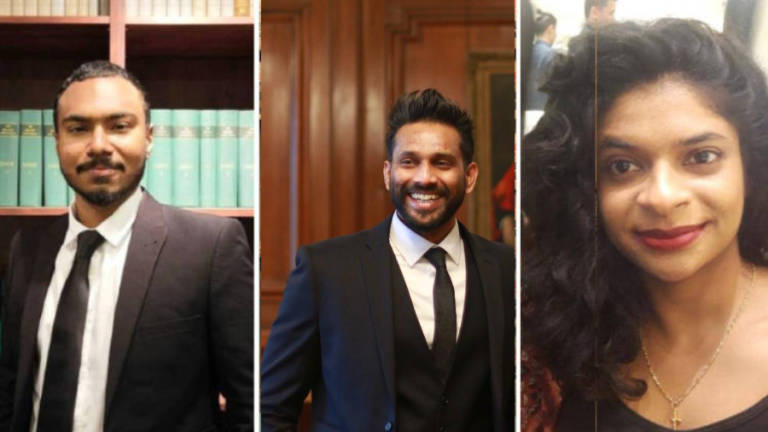PETALING JAYA: The rising incidence of fake news spread online as well as cyber-bullying all over the world warrant harsher penalties or a review of current laws.
In a letter to theSun, three individuals from the legal fraternity Teeruvarasu K. Muthusamy, Nicole Jo Pereira and Kuhan Raj noted that some of these cases have led to the victims committing suicide.
While they also commended the Malaysian authorities for having taken appropriate action on cyber crimes, they stressed that some legislation should be reviewed to empower the authorities to act against perpetrators.
They pointed out that more than 250 cases have already been investigated and the Malaysian Communications and Multimedia Commission (MCMC) has been able to prosecute individuals within 24 hours of the fake news being posted on social media.
As of May 14, they said, 30 individuals have already been hauled to court for such offences.
However, they noted, while the police have acted swiftly on recent reports made over seditious social media posts, they were slow to act in the case of 20-year-old victim R. Thivyanaayagi, who eventually killed herself.
Thivyanaayagi’s nightmare began when a Tik Tok video of her and a colleague was uploaded on Facebook with xenophobic remarks by a user unknown to the victim. The user allegedly instigated some 70,000 followers to comment on the video which went viral.
After a police report was lodged, the post spread like wildfire and, to make matters worse, the administrator of the page where the video was uploaded demanded that the victim upload a follow-up video to “apologise” for her actions.
Teeruvarasu said Thivyanaayagi’s case showed that as a nation, Malaysia had failed to adequately address the issue.
He said although police reports were lodged against Thivyanaayagi’s tormentors on May 19, the posts were still available on a video sharing site.
Similarly, he said, pictures of some of his clients in the nude continue to circulate on social media months after reports had been lodged with the MCMC and the perpetrators charged.
To better address the issue, he said, Malaysia could emulate Germany’s method by requiring social networks to remove or block access to content considered “manifestly unlawful” within 24 hours of receiving a complaint.
Under the German law, “unlawfulness” in this context is dependent on the falsity of an allegation. The social network gives the user an opportunity to respond to the complaint within seven days before a decision is made.
“This law is particularly helpful as it would mean that posts such as in the case of Thivyanaayagi would be acted upon faster. Seeing that time is of the essence in situations such as this, it would bode well for Malaysia to implement specific legislations on cyber-bullying which detail the handling of complaints regarding unlawful content as is done in Germany,” the trio added.













